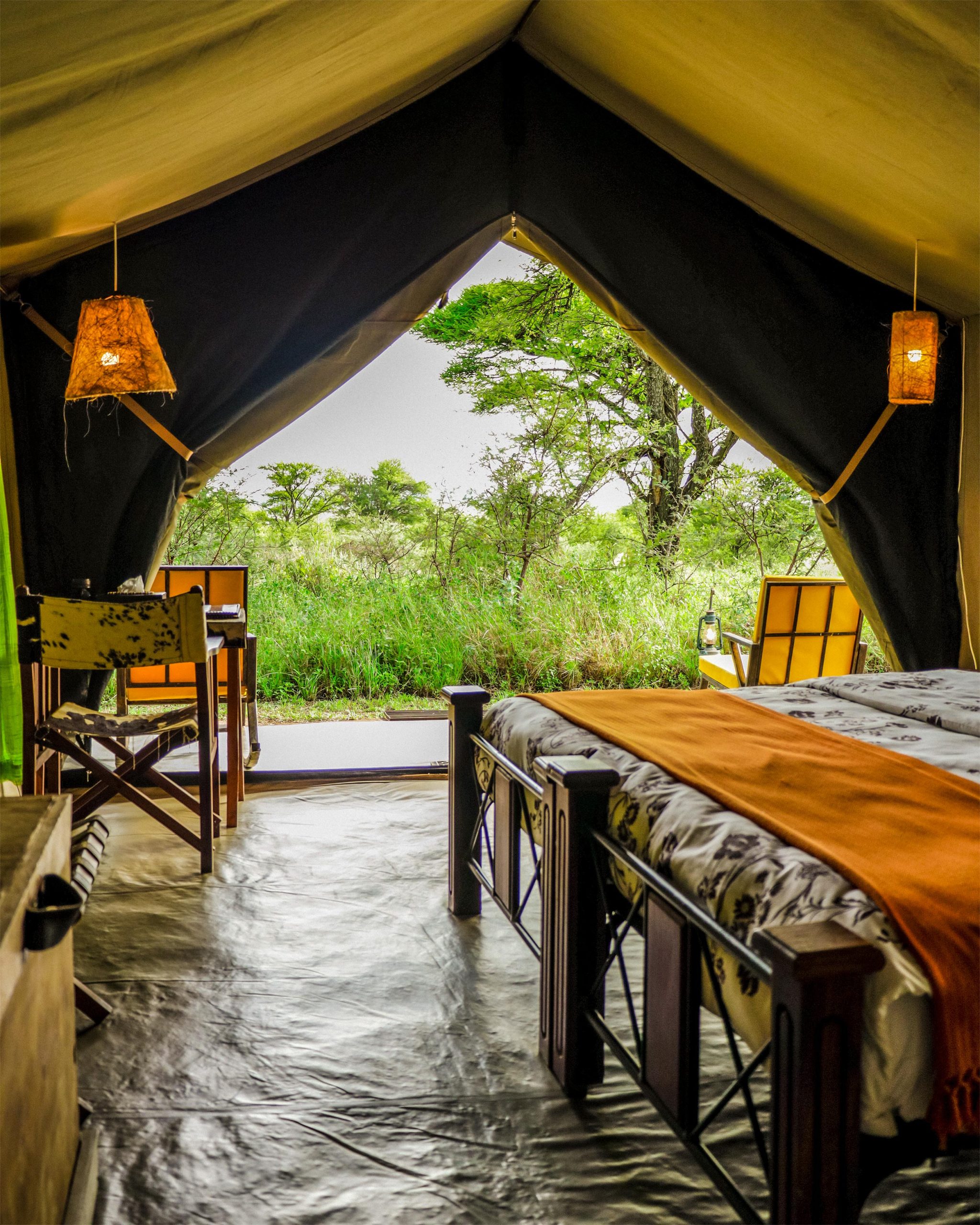Luxury Tanzania and Zanzibar Honeymoon Safaris 9 Day Luxury Tanzania and Zanzibar Honeymoon Safaris. Dream Honeymoon Safari to …
Top 5 Ethical African Safari Experiences
Discover Ethical African Safari Experiences that combine wildlife adventure, eco-friendly lodges, and support for local communities. Perfect for families and couples seeking sustainable travel, all-inclusive packages. Experience Serengeti, Ngorongoro & more with expert guides. Explore Africa responsibly with ethical safari tours. Enjoy breathtaking wildlife, cultural immersion, and luxury stays while preserving nature and uplifting local tribes.
Ethical African Safari Experience offers by top rated operators
Embark on an ethical Tanzanian safari, prioritizing responsible tourism that benefits local communities and wildlife conservation. Explore iconic parks like the Serengeti, famous for the Great Migration (June-October), and the Ngorongoro Crater, a UNESCO World Heritage site teeming with diverse wildlife. Amazing Ethical African Safari Experience prices vary widely based on the level of luxury, duration, and inclusions, ranging from budget-friendly camping safaris starting around $390 per person per day to luxurious all-inclusive packages exceeding $1,500 per person per day. Ethical African Safari Experience pricing mid-range options typically fall between 750 and $990 per person per day. Consider all-inclusive packages for a hassle-free experience covering accommodation, meals, game drives, and park fees.
Ultimate Ethical African Safari Experience reviews often praise the knowledgeable local guides and immersive cultural experiences. Tanzania offers incredible opportunities for family adventures with child-friendly lodges and tailored activities. For honeymooners, romantic and secluded options abound, combining thrilling wildlife encounters with luxurious and intimate accommodations. Numerous tour operators offer various itineraries, including photographic safaris, walking safaris, and cultural tours. Popular trips often combine wildlife viewing in the Northern Circuit (Serengeti, Ngorongoro, Tarangire, Lake Manyara) with relaxing beach holidays in Zanzibar. You can find detailed maps of Tanzania’s parks and reserves online. Ethical operators often highlight their commitment to sustainability and community involvement.
How to Choose an Ethical African Safari Experience
Embarking on an African safari is often a dream for many nature enthusiasts and adventure seekers. However, as the popularity of these excursions grows, it’s essential to consider the ethical implications of wildlife tourism. With the right approach, you can engage in a sustainable safari experience that respects both the environment and local communities. Here’s how to choose an ethical African safari. Choosing an ethical African safari is not just about the thrill of spotting the Big Five; it’s about ensuring that your adventure benefits the environment and the people who inhabit it. By doing your homework, supporting sustainable practices, and engaging with local communities, you can contribute to a legacy of responsible tourism that spans generations. Embrace the beauty of Africa while preserving it for future explorers.

Research Tour Operators – One of the most critical steps in selecting an ethical safari is researching and vetting tour operators. Look for companies that prioritize wildlife conservation, adhere to ethical guidelines, and comply with local regulations. Check if they are members of recognized organizations, such as the Ethical Traveler, which promotes responsible tourism practices. Read reviews from previous travelers to gauge experiences and the operator’s commitment to ethics.
Support Local Communities – Choose safari operators that employ local guides and support nearby communities. This not only provides employment opportunities but also enhances your experience by offering a deeper understanding of the region’s culture and ecosystem. Some companies actively involve local communities in conservation efforts, allowing them to benefit directly from tourism. This method ensures that locals have a vested interest in protecting their environment and wildlife, making your safari more impactful.
Wildlife Conservation Practices. Select tours that prioritize the well-being of animals and their habitats. Ethically run safaris often focus on conservation efforts. Look for operators that contribute to wildlife protection initiatives, such as anti-poaching campaigns and habitat restoration projects. Inquire about their approach to wildlife encounters; ethical safaris usually adhere to guidelines that prevent invasive behaviors, such as close encounters with wild animals. This ensures that wildlife can thrive in their natural habitats without undue stress from tourists.
Responsible Wildlife Viewing. When on safari, choose experiences that promote responsible wildlife viewing. This includes ensuring that viewing distances are maintained not to disturb the animals or their natural behaviors. Avoid activities that exploit animals for entertainment, such as walking with lions or any interaction with wildlife that appears unnatural. Responsible operators will focus on observing animals in their habitats while prioritizing their safety and well-being.
Sustainable Practices. Ethical safaris also embrace sustainability in their operations. Look for lodges and camps that implement eco-friendly practices such as using renewable energy sources, waste reduction programs, and water conservation measures. Some lodges also focus on sourcing food locally and minimizing their carbon footprint. Knowing that your accommodation is committed to sustainability enhances your experience and allows you to travel with less guilt.
Educate Yourself and Give Back. Finally, an ethical safari experience goes beyond just observing wildlife. Educate yourself about the local environment, culture, and conservation challenges facing the region. Many reputable safari operators offer the opportunity to participate in community service projects or conservation programs during your trip. This engagement allows you to give back while making a positive impact on the communities and ecosystems you visit.
Factors affecting the ethical African Safari Experience
The allure of an African safari captivates the hearts of many wildlife enthusiasts and adventurers worldwide. However, beyond the thrill of spotting majestic elephants, playful lions, and exquisite birds, there lies a critical consideration: the ethical implications of safari experiences. Understanding the factors that affect the ethical safari experience is essential for both travelers and operators alike, ensuring that tourism has a positive impact on local communities and wildlife. While the excitement of an African safari is undeniable, the ethical implications should not be overlooked. By considering factors such as wildlife conservation, community benefits, animal welfare, sustainable practices, cultural respect, and regulations, travelers can make informed decisions that enhance their safari experience while contributing positively to Africa’s rich and diverse environments.

Wildlife Conservation. At the core of an ethical safari experience is wildlife conservation. Tourists must prioritize operators who contribute positively to the protection and preservation of animals and their habitats. Ethical safaris should emphasize conservation efforts, supporting initiatives that prevent poaching and habitat destruction. Travelers can look for operators who collaborate with local conservation organizations, allowing their visits to directly benefit ecological sustainability and animal welfare.
Community Involvement and Benefit. An ethical safari experience must also consider the welfare of local communities. Many safari operations today engage with local populations, providing job opportunities and supporting educational and health initiatives. When selecting a safari operator, it’s crucial to assess how the operation benefits local communities. Supporting businesses that invest in their surrounding areas helps ensure that tourism provides meaningful economic support, fostering a mutually beneficial relationship between visitors and residents.
Animal Welfare and Treatment. The way animals are treated during tours is a critical factor influencing the ethical dynamics of a safari. Ethical safari operators adhere to strict guidelines that prioritize animal welfare, avoiding practices that cause stress or harm to wildlife. For instance, responsible operators limit the number of vehicles at wildlife sightings, maintain a safe distance from animals, and never engage in practices such as baiting or feeding. Travelers should inquire about an operator’s commitment to animal welfare to ensure their safari experience aligns with ethical standards.
Sustainable Practices. Sustainable practices play a vital role in an ethical safari experience. From using eco-friendly accommodations to minimizing waste, ethical safari operators take steps to lessen their environmental impact. Tourists benefit from choosing operators that implement sustainable cooking practices, utilize local resources, and focus on minimizing their carbon footprint. Travelers should seek out lodges and tours that prioritize sustainability, ensuring their adventure leaves the environment untouched and thriving.
Respect for Local Cultures. An ethical safari experience should also encompass respect for the diverse cultures of African nations. Travelers must approach interactions with local communities sensitively, acknowledging traditional customs and practices. Participating in cultural experiences should enhance mutual understanding rather than exploit local traditions for entertainment. Tourists can contribute positively by learning about local customs, engaging respectfully, and supporting cultural heritage initiatives.
Regulations and Certifications. Finally, the presence of regulations and certifications can inform ethical safari choices. Operators that adhere to recognized conservation and tourism standards, such as those certified by the Global Sustainable Tourism Council, tend to offer more ethical experiences. Travelers should look for these certifications when planning their safari to ensure that they are choosing operators who prioritize sustainability, conservation, and ethical treatment of wildlife and local communities.
Top 5 Ethical African Safari Experience Destinations
Embarking on a safari adventure in Africa is a dream for many wildlife enthusiasts. However, as the travel landscape evolves, an increasing number of travelers are seeking experiences that not only provide incredible wildlife encounters but also prioritize ethical practices. Here are the top five ethical safari destinations in Africa that promise both unforgettable adventures and a commitment to conservation. Choosing to explore Africa’s magnificent wildlife with an ethical mindset not only enhances your experience but also preserves the natural beauty for future generations. From the iconic Serengeti to the lush landscapes of Lake Manyara, these top five destinations reflect a commitment to sustainability that is vital in today’s world. By prioritizing ethical safari options, travelers can enjoy the thrill of adventure while making a meaningful impact on the environment and local communities.

Serengeti National Park, Tanzania. Renowned for its breathtaking landscapes and the Great Migration, Serengeti National Park is a top choice for ethical travelers. Numerous eco-friendly lodges and camps dot the park, emphasizing sustainable tourism practices. Many of these accommodations are designed to blend into the environment and prioritize local community engagement. By choosing these lodges, visitors support projects that benefit wildlife conservation and communities, ensuring that the park retains its natural beauty and ecological integrity for future generations.
Tarangire National Park, Tanzania. Known for its vast elephant herds and iconic baobab trees, Tarangire National Park offers an authentic safari experience away from the busier circuits. The park’s lesser-known status makes it a sweet spot for those looking for intimate wildlife encounters. Ethical safari operators in Tarangire often engage in responsible tourism practices, focusing on small group sizes and educational guided tours. This ensures a minimal impact on the environment while maximizing your opportunity to learn about the ecosystem and its inhabitants.
Lake Manyara National Park, Tanzania. Famous for its stunning landscapes and diverse wildlife, Lake Manyara National Park is also engaged in sustainable practices. Eco-camps within the park provide guests with the opportunity to stay in beautifully constructed accommodations that harmonize with the surroundings. Engaging in programs that focus on both conservation and community outreach, visitors are encouraged to participate in initiatives that help protect the park’s delicate ecosystems. From bird watching to experiencing the unique habitats of the park, ethical tourism is at the forefront of every visit.
Arusha National Park, Tanzania. Arusha National Park is an underexplored gem known for its iconic Mount Meru and vibrant wildlife. Ethical travelers will appreciate the commitment to conservation initiatives in this area, which includes local community involvement in tourism. Many guided hikes and nature walks emphasize environmental stewardship and the importance of preserving local flora and fauna. The park also actively participates in wildlife rehabilitation programs, allowing visitors the chance to experience nature while generating positive impacts, making it a responsible choice for nature lovers.
Ngorongoro Crater, Tanzania. As a UNESCO World Heritage Site, Ngorongoro Crater is one of the best-preserved calderas in the world, teeming with a rich diversity of wildlife. Responsible safari operators prioritize low-impact tourism here, taking measures to minimize vehicle congestion and access to sensitive areas. Visitors can engage with local Maasai communities, learning about their culture and traditions, which promotes respect and understanding of their way of life. Staying in eco-friendly lodges and partaking in conservation tours empowers guests to contribute positively to local initiatives.
Ethical East African Safari Packages
Embark on an Ethical East African Safari that offers unforgettable wildlife encounters, cultural immersion, and sustainable travel. Explore destinations like Ngorongoro crater, Tarangire, Lake Manyara, and Tanzania’s Serengeti, staying in eco-friendly lodges that support local communities. Packages include game drives, cultural village visits, and beach relaxation in Zanzibar or Mombasa. Prices range from $250 for day trips to over $5,000 for all-inclusive luxury experiences. Travel responsibly with operators like Foot Slopes Tours and Safaris offer ethical African Safaris as the best East Africa Travel Company, ensuring your journey benefits both nature and people.
Serengeti Honeymoon Safaris | 14 Days African Big Cats Safaris Embark on and celebrate love with a 14-day …
Perfect 7 Days Luxury Safari in Tanzania Experience the ultimate adventure with our 7-Day Tanzania Luxury Safari. Journey …
Ethical Animal Encounters on an African Safari
Tanzania, known for its breathtaking landscapes and diverse places to spot ethical animal encounters on an African Safari, has become a sought-after destination for those seeking the thrill of a safari. However, travelers are increasingly seeking experiences that align with their values, particularly when it comes to animal welfare. Ethical animal encounters are becoming central to the safari experience, ensuring that travelers can enjoy the beauty of Tanzania’s wildlife while contributing to conservation efforts and the well-being of the animals. When planning a safari, it’s essential to consider how interactions with wildlife are managed. Ethical safari operators prioritize animal welfare, ensuring that animals are observed in their natural habitat without distress. Instead of commercialized programs that exploit animals, ethical tours focus on sustainable practices and conservation education. Tourists can participate in wildlife safaris that emphasize observation rather than interaction, which allows for a more natural experience for both animals and visitors.

One of the premier locations for ethical wildlife experiences is the Serengeti. Home to the Great Migration, where millions of wildebeest and zebras traverse the plains in search of greener pastures. Observing this magnificent migration from a distance allows guests to appreciate the spectacle of nature without disrupting the animals’ behaviors. Tour operators committed to ethical practices provide guides who are trained in wildlife conservation, ensuring that guests are informed about the importance of protecting these species and their habitats.
Another highlight of ethical animal encounters is visiting Ngorongoro Crater. A UNESCO World Heritage Site teeming with wildlife. The crater offers a unique opportunity to witness a variety of animals—lions, elephants, rhinos, and more ethical and Authentic Animal Experiences In Africa—coexisting in an ecosystem that has remained largely intact. Ethical tours here ensure that the vehicle access is regulated, minimizing the impact on the environment while allowing for memorable wildlife viewing.
For those interested in primates, a visit to Gombe Stream National Park or Mahale Mountains National Park for chimpanzee trekking can be a meaningful experience. Ethical trekking allows visitors to observe these incredible creatures in their natural environment while supporting initiatives aimed at preserving their populations. The funds generated from such activities help local communities and conservation programs, fostering a symbiotic relationship between tourism and wildlife preservation.
Engaging in community-based tourism can also enhance your ethical safari experience. Many local communities work with conservation organizations to create programs that promote cultural exchange and wildlife preservation. By participating in these initiatives, travelers contribute to the livelihood of local people while supporting the conservation of the wildlife they encounter. Learning about local traditions and customs adds depth to your safari experience and fosters respect for the land and its inhabitants.
Ultimately, the goal of an ethical animal encounter on a Tanzanian safari is to create lasting memories without compromising the well-being of wildlife. To ensure a rewarding experience, it’s crucial to do your research beforehand—look for operators who are certified in ethical tourism and who prioritize sustainability in their practices.
As responsible travelers, we can delight in the majesty of Tanzania’s wildlife while simultaneously investing in its future. By making conscious choices during our safaris, we not only enrich our own experiences but also contribute to the ongoing efforts to protect the incredible wildlife and landscapes that make Tanzania such a remarkable destination.
Ethical East African Safari Accommodations
Ethical East African safari accommodations offer immersive experiences that blend luxury with sustainability. Lodges like Melia Ngorongoro Safari lodge, Four Season Serengeti Safari lodge, Melia Serengeti Safari lodge, and Singita Sasakwa Lodge in Tanzania prioritize conservation and community engagement. These eco-lodges utilize solar energy, support local artisans, and contribute to wildlife preservation efforts. Guests can enjoy guided safaris, cultural interactions, and farm-to-table dining, all while minimizing their environmental footprint. Such stays ensure that your safari adventure supports both nature and local communities.
Park Hyatt Zanzibar Park Hyatt Zanzibar Featuring a seafront location in Zanzibar City, Park Hyatt Zanzibar offers an …
Melia Zanzibar Melia Zanzibar A luxury exclusive high end Meliá Zanzibar 5* luxurious hotel – Wellbeing & Sustainability …
Arusha Coffee Lodge —- Arusha Coffee Lodge A boutique hotel located in Arusha, Tanzania, known for its unique …
The ultimate guide to ethical African Safari Experience
Discover the ultimate guide to an ethical African safari experience—where adventure meets responsibility. Learn how to choose eco-conscious tour operators, support local communities, and stay in sustainable lodges. Explore iconic destinations like the Serengeti, Tarangire, Lake Manyara, Arusha National Park, Zanzibar, and Ngorongoro while ensuring your journey benefits wildlife conservation and cultural preservation. This guide empowers travelers to enjoy unforgettable safaris with a purpose, making a positive impact on both people and the planet. Travel smart, travel ethically.






